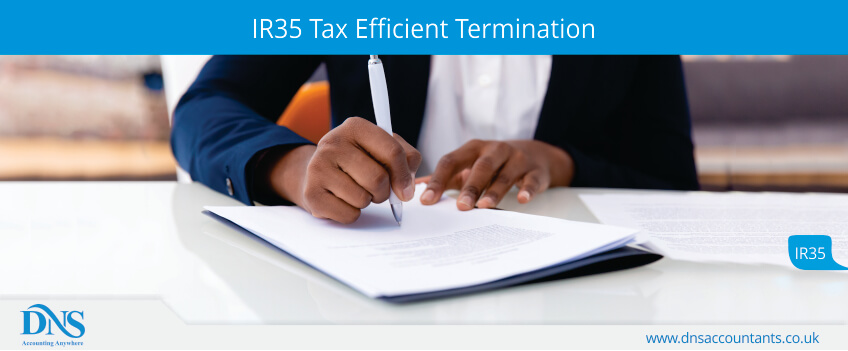On 17th March 2020, due to the Covid-19 outbreak, the Government announced a last-minute delay to the extension of the off-payroll rules in private sector. The rules will now apply from April-2021.
The off-payroll rules which are already applicable to contractors working in the public sector, will be extended to the contractors working for large and medium companies operating in the private sector. As per the new rules, the responsibility of determining whether the particular contract falls inside or outside of IR35, will shift from the contractor’s company (PSC) to the hirer/end client that requires the contractor’s services. The new rules also shift the burden of tax and national insurance contributions due and the risk of penalties to the fee-payer (the agency or end client paying the contractor’s PSC), if the contractor’s status is assessed wrongly and successfully challenged by HMRC. To read the changes and what it means for you, download our comprehensive guide to off-payroll rules.

The government’s eleventh-hour decision to continue with the reforms has left very little time for businesses to prepare for the changes. The increasing pressure has led many large organisations to take drastic measures – like terminating contingent workers contracts or banning working with contractors completely, to reduce their exposure and avoid a rift with HMRC. The contractors affected by these actions are facing turmoil and are being forced to accept permanent jobs or switch to umbrella, which may put some of them under extreme financial pressure.
Read More: IR35 Compliance
We understand that it is a difficult time for contractors who are affected by the IR35 changes, especially when the options available are very limited and being enforced without giving much choice.
The below article explains the choices contractors face once assessed to be Inside IR35 by the hirer:
- Can I continue to use my limited company after being assessed as inside IR35?
- What is an Umbrella Company?
- What is Agency PAYE?
- Working as a permanent employee?
- What should I do with my Limited Company?
Assessed Inside IR35 – What happens next?
Many prudent organisations have already started assessing their contractor workforce for IR35 and have laid down the options depending on the end date of the contracts. Those contractors who are inside IR35, have been offered alternative contracts either through an Umbrella Company, Agency PAYE or Permanent Employment, which will be discussed in length later in the article.
Using Limited Company After being Assessed Inside IR35
The provisions of the off-payroll rules are contained in Chapter 10 Part 2 ITEPA, 2003, which states that if off-payroll applies, then the fee payer needs to deduct the tax and primary Class 1 National Insurance Contributions (employee NI) due before paying your PSC. The fee-payer cannot lawfully deduct the employment costs – secondary Class 1 NICs (employer’s NIC) and Apprenticeship levy from the rate agreed with you. For example: If the daily rate agreed for the contract is £500, the fee-payer can only deduct tax and employee NIC from the rate and has to bear the employments costs in addition to the agreed £500-day rate.
The main downside of continuing to operate through the same Limited Company after being caught under IR35 comes from the risk of being retrospectively investigated by HMRC, simply because before the reforms your contract was compliant with IR35 but after the reforms the contract is deemed inside IR35. Although HMRC has confirmed the law will apply from 6 April 2020, they have not ruled out the possibility of retrospective investigation in cases where they suspect fraud or criminal behavior. HMRC does not define what constitutes fraud and could go back up to 4 years or even 6 years if they can prove carelessness to investigate your company.
If your PSC is holding large cash reserves, this can be a huge danger as it makes you more vulnerable to HMRC enquiries and you could potentially face a large Tax and NIC bill, if successfully challenged by HMRC.
Thus, it may be practical to consider winding up the company, particularly if you have no plans to return to contracting with an outside IR35 contract for the foreseeable future.
If you are a contractor contemplating to accept an alternate contract, you must understand the impact it will have on you in both short and long run and should decide which of the below option best suits your requirements.
Umbrella Company
Working through an umbrella means you become an employee of the umbrella company by way on an overarching employment contract. The Umbrella company then contracts out your services to the agency or end client enabling you to undertake fixed term assignments. The umbrella company is responsible to collect your earnings from the fee-payer and deduct PAYE tax and class 1 NICs before paying you a salary.
The main benefits of using an Umbrella Company:
Disadvantages of using an Umbrella Company:
Read More: How An Umbrella Company Works?
Agency PAYE
Under Agency PAYE you become an employee of the recruitment agency and they are responsible for processing your payroll and deducting PAYE tax and Class 1 NIC before paying you a salary. You will still be entitled to statutory payment like sick pay.
Read More: What is PAYE?
The key difference between Agency PAYE and Umbrella is that umbrella employs you under a contract of employment which enables you to take multiple assignments under one contract, whereas Agency PAYE will employ you under a fixed term contract and you may be required to sign a new contract each time you start with a new assignment.
Benefits
Disadvantages
Permanent Employee
Working as a permanent employee means you will be employed full-time by the client under a permanent employment contract, with a fixed salary and entitled to all company benefits and employment rights. Be prepared to accept a pay cut of circa 25% as the company will need to make provisions for your pensions, holiday pay and other employment costs.
Benefits
Disadvantages
The Limited Company Conundrum!
Now that you have decided between Umbrella/Agency PAYE and Permanent position, you will need to make a big decision of what you need to do with the limited company. This may prove to be a difficult exercise as you need to carefully analyse your options and requirements in relation to the limited company.
Broadly speaking you need to decide between –
Dormant Company
In case you are planning to establish an outside IR35 contract in the future and your company has more than £25,000 reserves, you may want to keep the company active. This will ensure you can use a limited company for contracting purposes in case if an opportunity arises.
Benefits of keeping the company dormant
Disadvantages
Read More: What is Dormant Company?
Winding up the company
In case you are not planning or thinking of returning back to contracting in the near future, especially when you have £25,000 or less in reserves, you must consider the option of winding up the company. The announcement on the changes will be communicated in the upcoming budget due in March.
So, although the possibility of coming back to an outside IR35 contract may be music to your ears, winding up the company will almost certainly ensure there is no risk of a retrospective enquiry.








